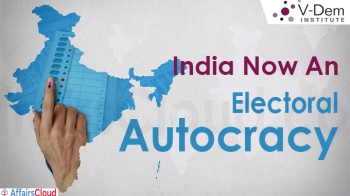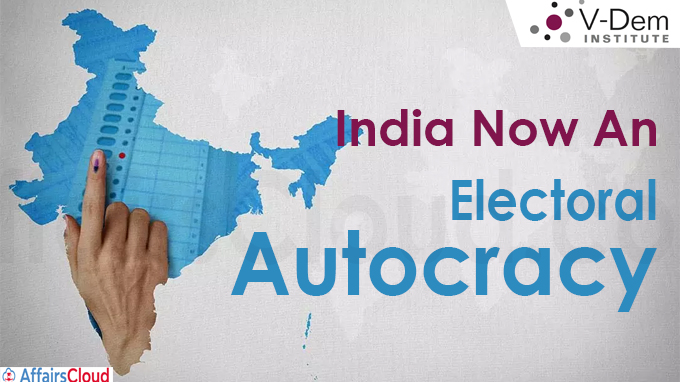
.png) Jaswant Kaur
Jaswant Kaur

Ever since we grew up, we have been constantly told that we are the largest and the most vibrant democracy. We as citizens have been given certain fundamental rights. In case someone violates them, our Constitution has given us certain remedies. We can approach the court to get these rights enforced.
During our school days, we were asked to memorise these concepts so that we are able to use them during our day-to-day life. We used to take immense pride in describing that we all are one despite the kind of diversity we have in our country.
That’s why we were highly disturbed when we saw people fighting over religion or matters that actually defined our diversity. We did not like the charged-up environment when the government decided to implement the recommendations of the Mandal Commission report. We hated the violence that followed. Vehicles were burnt and schools were closed as people adopted violent behaviour.
So much so that Doordarshan had to stream a special song in the 90s to spread the message of love, harmony and integrity. Many of us may still remember the song Sun Sun Sun mere nanhe sun/sun sun sun mere mune sun/Prem ki Ganga bahe/desh mein eka rahe/ The depiction of the song had featured many film actors and child actors. The idea was to spread the message of love and unity among children assuming a trickle-down effect.
Recently, the 11-year-old son of this writer, started asking about the functioning of institutions like Panchayat, Zila Parishad, state Assembly and Parliament, as he listened to the conversation of a few people in his village. That is how children generally contextualise the knowledge gained through books or digital platforms with real-life. If things appear to be different, they do question.
Of late, a lot of debate and discussion have been held, questioning our democratic values. There have been several incidents that raised our eyebrows, be it vandalisation of religious places, atrocities on minorities or restrictions on civil society, misuse of constitutional institutions and so on.
A recent report published by V-Dem (Varieties of Democracy) Institute at the University of Gothenburg in Sweden has ignited the debate afresh. The report speaks volumes about a new emerging trend. It shows that democracy is swiftly being replaced by autocratic set-ups across the world. The data captured by the report reveals that by the end of the year 2022, 72 percent of the world population was ruled over by autocracies. Out of this, nearly 28 percent stayed in “closed autocracies”.
It also says that “advances in global levels of democracy made over the last 35 years have been wiped out” during the last half decade. Not only this, as on date, only 13 percent of the world population live in liberal democracies.
It says that many governments promulgated various laws during the onset of Covid-19 in the garb of taking stock of the situation. These laws/regulations gave extraordinary powers to the executive, impinging on various constitutional rights of the citizens and curtailing their freedom. For instance, the stringent rules were imposed for stopping certain protests in Delhi while political and religious rallies were allowed.
In April 2020, the legal provisions imposed included announcing an entirely new set of law for the state of Jammu & Kashmir. The law gave rights to acquire permanent residence in the state to people who stayed for 15 years or those who have studied there for seven years and have appeared in Class 10 and 12 exams.
A sudden lockdown was imposed without taking into account its impact on millions of people who struggle for two square meals a day. It showed how easily the lives of the marginalised could be disrupted. The images of migrant workers walking barefoot without any resources from the national capital and other metro cities to their hometown cannot be forgotten.
The report refers to India as “one of the worst ‘autocratisers’ in the last 10 years”. It bases its findings on 60 indices and 500 indicators. In other words, it is not just based on a few reports. Extensive data has been collected to form its opinion.
During the last 10 years, many countries have witnessed reduced/curtailed freedom of ex
Considering India’s performance on various indicators, it has been placed in the bottom 40 to 50 percent on Liberal democracy Index. It ranks 108 on the electoral democracy index and 123 on the Egalitarian Component Index. All these mean that elections are no longer conducted in a free and fair manner, while judicial constraints on the executive have weakened with lesser protection on civil liberties.
Not only this, academic freedom in the country has also taken a hit. The report has put India in the list of 22 countries where academic institutions and scholars have “significantly lesser freedom today than 10 years ago.” The country has received a score of 0.38 on the scale of zero to one (where one is highest level of academic freedom) which is way behind neighbouring Nepal (0.86), Pakistan (0.45) and Bhutan (0.46).
The academic freedom started declining in the year 2009 characterised by a drop in university autonomy followed by a sharp decline from 2013 onwards. To quote the report, “Around 2013, all aspects of academic freedom began to decline strongly, reinforced with Narendra Modi’s election as Prime Minister in 2014.
Campus integrity, institutional autonomy, and the freedom of academic and cultural ex
If one recalls a few reports published during the last two years, the V-Dem report should not come as a surprise. In 2021, when V-Dem had categorised India as “electoral autocracy” for the first time, Freedom House, another entity, had also classified India as “partly free”. During the same time, another organisation, the Institute for Democracy and Electoral Assistance, classified India as a “backsliding democracy” and a “major decliner” in its report titled Global State of Democracy (GSoD).
In other words, this is not the first time that India’s democratic status has been questioned. Yet, the government has outrightly rejected and questioned the methodology used by V-Dem. It is time to do some introspection. The government should have started a dialogue with the institute and highlighted the flaws in their methodology. It should have raised its objection with reason and logic just like a research paper published by Sydney-based Indian Century Roundtable. If one goes through the research report, one can seriously find some flaws in the methodology.
However, the entire report cannot be ignored just by labelling it as a “motivated” effort to degrade India when the country is relating itself to the position of “Vishwa Guru”. It is important to self-introspect and relook at some of the key policy decisions that the government has taken in the past.
For instance, the FCRA amendments in 2021 and the recent income tax amendments and finance Bill 2023, have certainly affected the civil society, which is an important indicator for the V-Dem report. Year on year, the civil society organisations have faced the government’s wrath for criticising the government in its functions.
This is just one example. There are several other instances which have certainly raised questions on the government’s stand on constitutional principles. It is important that we walk the path we talk about. Our children certainly are looking at our leaders. It is important that they get the right message at the right time. Lest they start questioning the content being taught in their textbooks and start disbelieving in what we call ourselves -– the mother of all democracies.